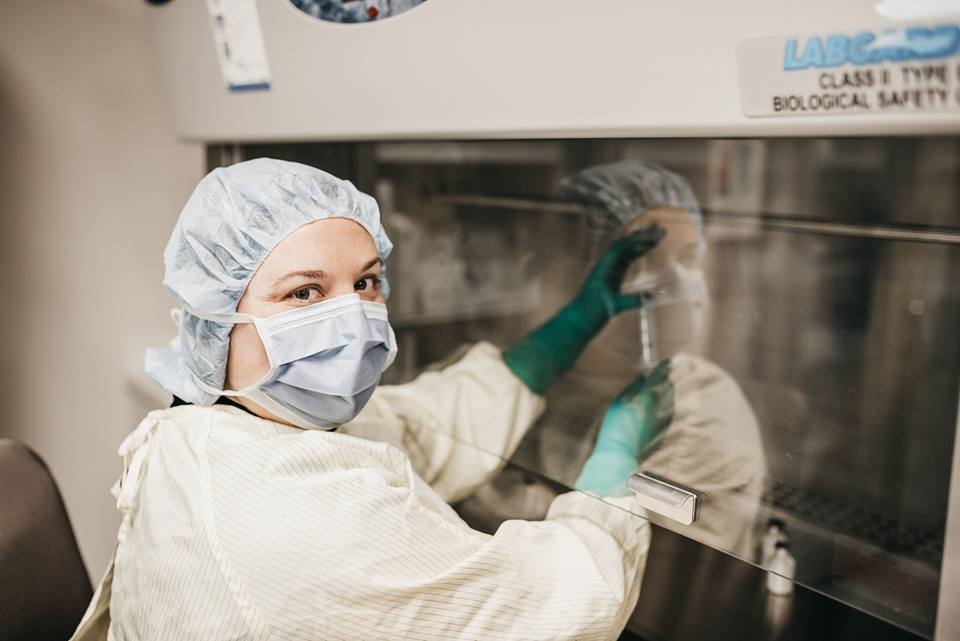Position Paper: Compounding Competencies for Pharmacy Professionals

The National Association of Pharmacy Regulatory Authorities (NAPRA) is in the process of updating its entry-to-practice competency documents. There are varying opinions about whether to require competence in sterile compounding at entry-to-practice, or to treat it as an additional expertise that could be gained after licensure, for those wishing to work in this area of practice.
In the spring of this year, NAPRA collected feedback from organizations such as regulatory colleges, education institutions of pharmacy technician programs, the Canadian Association of Pharmacists, and the Canadian Association of Pharmacy Technicians (CAPT). PTSA learned of this work and the consultation survey through our relationship with the Alberta College of Pharmacy, Pharmacy Technician schools and CAPT.
To inform a position paper on this issue, members attending the annual general meeting on September 9, 2023, engaged in a lively discussion on this topic. You are invited to continue to share your thoughts on the following questions:
Question 1: In your opinion, are entry-level pharmacy technicians prepared to participate in sterile compounding activities or is additional training required?
Question 2: Are entry-level pharmacists prepared to participate in sterile compounding activities or is additional training required?
Question 3: What are your views on whether competence in sterile compounding should be required at entry to practice?
In November 2023, NAPRA invited all pharmacy professionals to have their say through a survey outlining the proposed updated entry-to-practice competencies.
Members of the PTSA advocacy committee, along with representatives from the Canadian Association of Pharmacy Technicians (CAPT) and Pharmacy Technician Society of British Columbia (PTSBC) reviewed the draft competencies. Generally, the proposed amendments create broad competency statements that reflect current competencies. There was consensus that competencies 1.7.2 to 1.7.4 (those related to compounding) must be further revised to reflect pharmacy technicians and pharmacists continuing to be required to safely compound quality hazardous and non-hazardous, sterile and non-sterile compounds at entry to practice. Additionally, the committee agreed that these competencies are critical for the safe and competent performance of an entry-level pharmacy technician. A letter has been sent to NAPRA to provide this feedback along with comments regarding several other competencies.
Read the Position Paper: Compounding Competencies for Pharmacy Professionals for more information.
Share your thoughts in the comments below or email info@ptsa.ca.

9 replies on “Position Paper: Compounding Competencies for Pharmacy Professionals”
Question 1: I feel that my training did prepare me well for sterile compounding at entry to practice. I spent many hours in my college compounding lab and by the end I had clean results from media fill and finger tip tests, which my hospital practicum placement really appreciated. They complimented me on how practiced my technique already was.
Question 2: I am admittedly unfamiliar with the entry level training pharmacist students have.
Question 3: Removing this requirement from school means new grads would likely not get the week of sterile compounding time in their hospital practicum anymore which I feel would be a loss. I do non-sterile for my job but feel my time learning aseptic technique was invaluable.
Question 1- I do feel that entry level pharmacy technicians are prepared to participate from a basic skills point of view. When that technician starts a job at a facility where there is sterile compounding, they will receive site specific training to be able to do the job to that company’s standard. I definitely think on hands sterile compounding training is a must for a pharmacy technician.
Question 2- I am not aware if pharmacists currently receive on hands sterile compounding training in university. I do think they need on hands sterile compounding training before they graduate.
Question 3- Absolutely yes, competence in sterile compounding should be required.
Thanks for sharing your comments. We hope you see them reflected in the final position paper.
As a (Provisional) Pharmacy Tech who took my (1-year) education in 2017, and just took my PEBC Exams in September of 2023 (passed both, yay!!!), I have to say that I remembered <> of my training from the course when I was doing my Exams, but it was VERY nerve-wracking while doing so, as I hoped that my answers were correct, haha
Question 1: In your opinion, are entry-level pharmacy technicians prepared to participate in sterile compounding activities or is additional training required?
Mostly prepared, I think. At least on my course, we did about 2 weeks in classroom of techniques, and then in my 1-month hospital practicum, I spent 1 week in the Sterile Room. Mostly doing routine things, but definitely did all the gloving up, etc. So, if I had gone directly to a hospital / sterile setting, the transition would’ve been fine.
If I had to go to a Sterile situation right now, the story would obviously be different, but for myself at least, I am a very hands-on learner, so the transition would not be too bad
Question 2: Are entry-level pharmacists prepared to participate in sterile compounding activities or is additional training required?
I don’t think I am qualified to answer this question, as I have not experienced an entry-level pharmacist in that setting
Question 3: What are your views on whether competence in sterile compounding should be required at entry to practice?
I think a basic understanding like what my experience in Answer #1 should be a minimum. Additional training would be a good thing, but I would assume the majority of the training would be more hands-on.
If the NAPRA rules changed, obviously the PEBC Exams would have to be drastically changed, as there were quite a few questions regarding this subject.
Congrats on passing your exams! Your comments helped us finalize the position paper.
Answer #1:
In my opinion, I would say no. The intricacies and precision required in sterile compounding call for continuous education and practical exposure that goes beyond basic training. For example, at the Grande Prairie Cancer Clinic Pharmacy, we provide comprehensive hands-on training upon joining our team. This training spans approximately a month, tailored to individual learning speeds, ensuring a thorough understanding of the process. Our training program covers a spectrum of essential aspects, ranging from the correct usage of personal protective equipment (PPE) in designated pharmacy zones to supervised guidance in controlled environments, such as the clean room. This encompasses handling hazardous and cytotoxic IV admixtures, ensuring thorough preparation and safety protocols. After the completion of training and confirmation of readiness, technicians will proceed to certification enabling independent mixing of IV admixtures. This annual certification, mandated for all technicians, ensures ongoing compliance with NAPRA guidelines and maintains a high standard of safety and competence.
Answer #2:
Entry-level pharmacists typically possess a solid theoretical foundation in sterile compounding but may lack extensive practical experience. Given the critical nature of sterile compounding and its direct impact on patient safety, continuous training and mentorship programs are advisable to ensure pharmacists are thoroughly competent in this area.
Answer #3:
Competence in sterile compounding should indeed be a prerequisite for entry to practice in pharmacy settings. This skill directly affects patient health and safety, demanding a high level of proficiency. Establishing stringent standards ensures that all professionals entering the field have demonstrated their capability in this critical aspect of pharmaceutical practice, ultimately safeguarding patient well-being.
Thanks for sharing how things work in your practice. Compounding competencies should definitely continue to be required at entry-to-practice.
Question #1
In my opinion, of course an entry level pharmacy technician is not prepared to participate in sterile compounding activities immediately. What’s important though is that they have the basics or foundational knowledge to build on. As a sterile compounding technician, it is difficult enough to train new technicians that have those basics, I can’t even imagine getting technicians with no knowledge or foundation. It is challenging, and it requires skill and finesse and I think that entry level technicians should have the basics at the absolute bare minimum. We are considered health care professionals, why are we discussing lessening our skill set and knowledge instead of enhancing it?!
Question #2
I think I basically covered this in question #1. No an entry level tech is not ready and they certainly require extra training. That being said, they are a LOT easier to train and far better prepared when they have learned the very basic. There is even a significantly noticeable difference between techs who went through post secondary that had proper clean rooms and PEC’s versus those who didn’t.
Question #3
I believe that sterile compounding should absolutely be a requirement for entry to practice. Even if you never work inside a clean room, just having the understanding of how it works and what we are doing in there so you can be an effective technician on the other side when you need to final check those sterile products. I also believe that sterile compounding technicians should be compensated in wage for having the extra training and certification required to perform those duties.
Great thoughts from the perspective of the trainer for new pharmacy technicians learning to become sterile compounders.
Interesting point about compensation. Depending on the competencies outcome that could be another area for PTSA to focus advocacy efforts.